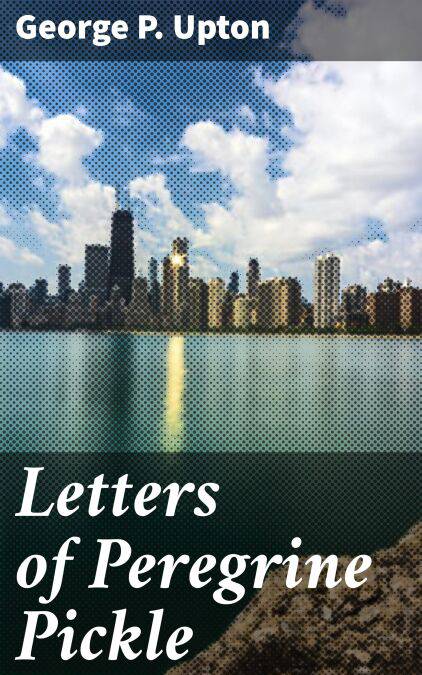
- Afhalen na 1 uur in een winkel met voorraad
- Gratis thuislevering in België vanaf € 30
- Ruim aanbod met 7 miljoen producten
- Afhalen na 1 uur in een winkel met voorraad
- Gratis thuislevering in België vanaf € 30
- Ruim aanbod met 7 miljoen producten
Zoeken
Letters of Peregrine Pickle E-BOOK
A Provocative Epistolary Novel of Wit, Humor, and Social Commentary in Georgian Society
George P. Upton
E-book | Engels
€ 0,49
Omschrijving
In "Letters of Peregrine Pickle," George P. Upton presents a masterful exploration of 18th-century literary forms through a collection of epistolary writings that navigate the complexities of human nature and societal norms. Upton'Äôs prose is characterized by its wit and keen observation, reflecting the influences of contemporary novelists like Tobias Smollett and Henry Fielding. The letters encapsulate the trials and tribulations of the protagonist, Peregrine Pickle, offering readers both humor and a poignant critique of the period's cultural milieu, intertwined with themes of love, folly, and moral ambiguity. George P. Upton, a prominent figure in the literary landscape of his time, was deeply influenced by the shifting societal mores of the 18th century, which shaped his perspective on individual agency and societal critique. His experiences as a writer and critic dedicated to the exploration of popular literature fueled his desire to capture the essence of human experience through the lens of humor and satire. Upton's work served as a commentary on the era's emerging middle class and their place within the evolving literary canon. This book is highly recommended for readers interested in the intersection of humor and social commentary within the epistolary genre. Upton's ability to weave intricate narratives through letters will delight both scholars and casual readers alike, offering rich insights into the human condition and the intricacies of 18th-century society.
Specificaties
Betrokkenen
- Auteur(s):
- Uitgeverij:
Inhoud
- Aantal bladzijden:
- 665
- Taal:
- Engels
Eigenschappen
- Productcode (EAN):
- 4064066170912
- Verschijningsdatum:
- 15/12/2019
- Uitvoering:
- E-book
- Beveiligd met:
- Digital watermarking
- Formaat:
- ePub

Alleen bij Standaard Boekhandel
Beoordelingen
We publiceren alleen reviews die voldoen aan de voorwaarden voor reviews. Bekijk onze voorwaarden voor reviews.








